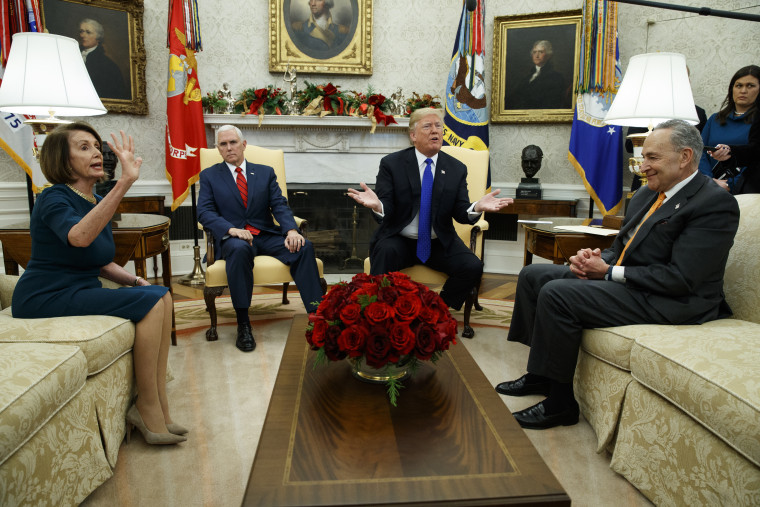A common element of every State of the Union address is a president introducing a laundry list of priorities he or she would like Congress to tackle. About halfway through Donald Trump's remarks, we heard something unfamiliar from the Republican:
"Tonight, I am also asking you to join me in another fight that all Americans can get behind: the fight against childhood cancer."Joining Melania in the gallery this evening is a very brave 10-year-old girl, Grace Eline. Every birthday since she was 4, Grace asked her friends to donate to St. Jude Children's Research Hospital. She did not know that one day she might be a patient herself. Last year, Grace was diagnosed with brain cancer. Immediately, she began radiation treatment. At the same time, she rallied her community and raised more than $40,000 for the fight against cancer. When Grace completed treatment last fall, her doctors and nurses cheered with tears in their eyes as she hung up a poster that read: 'Last Day of Chemo.' Grace -- you are an inspiration to us all."Many childhood cancers have not seen new therapies in decades. My budget will ask the Congress for $500 million over the next 10 years to fund this critical lifesaving research."
I thought it was at least possible that he misspoke when he requested $500 million over the next decade, but the White House published the text of the remarks as written, and that's what he meant to say.
On the surface, this probably seemed like one of the least controversial appeals in the address. It's not like childhood cancer is an issue with two equally weighted sides.
But it wasn't long before House Speaker Nancy Pelosi (D-Calif.) raised a legitimate concern about Trump's proposal -- not because she's against cancer research, but because of the paucity behind the president's request. Politico reported today:
"$500 million over 10 years – are you kidding me?" Pelosi said during a closed-door conference meeting, according to an aide in the room. "Who gave him that [$50 million] figure? It's like the cost of his protection of his Mar-a-Lago or something." [...]But allotting an extra $500 million over the next decade pales in comparison to the National Cancer Institute's nearly $6 billion annual budget — or even the Obama administration's cancer moonshot, which resulted in Congress approving $1.8 billion over seven years to finding a cure."We're talking about a moonshot," Pelosi said during the conference meeting. "He's talking about a trolley ride."
Her reported reference to Mar-a-Lago wasn't far off: we learned this week that the cost to taxpayers of Trump's trip to his golf club in Florida topped $64 million over the first two years of his presidency.
There's a school of thought that says it's difficult to write about a bunch of words that end in "-illion." People start to imagine a bunch of zeroes, and the figures become difficult to follow. But in this case, the context is important.
If Congress were to spend $500 million over the next decade on combating childhood cancer, it would mean $50 million a year. ($50 million a year for 10 years is $500 million.) For the typical American household, $50 million a year sounds like an unimaginable amount of money.
But in the annual federal budget for a global superpower, where the government spends over $4 trillion a year, $50 million in a given year is, for all intents and purposes, effectively a rounding error.
My point is not to criticize the White House's interest in cancer research. It's obviously a worthwhile goal, and Team Trump should be encouraged to pursue this and related health care priorities.
But if the president were serious about this, he should've asked for a more credible amount of money.
